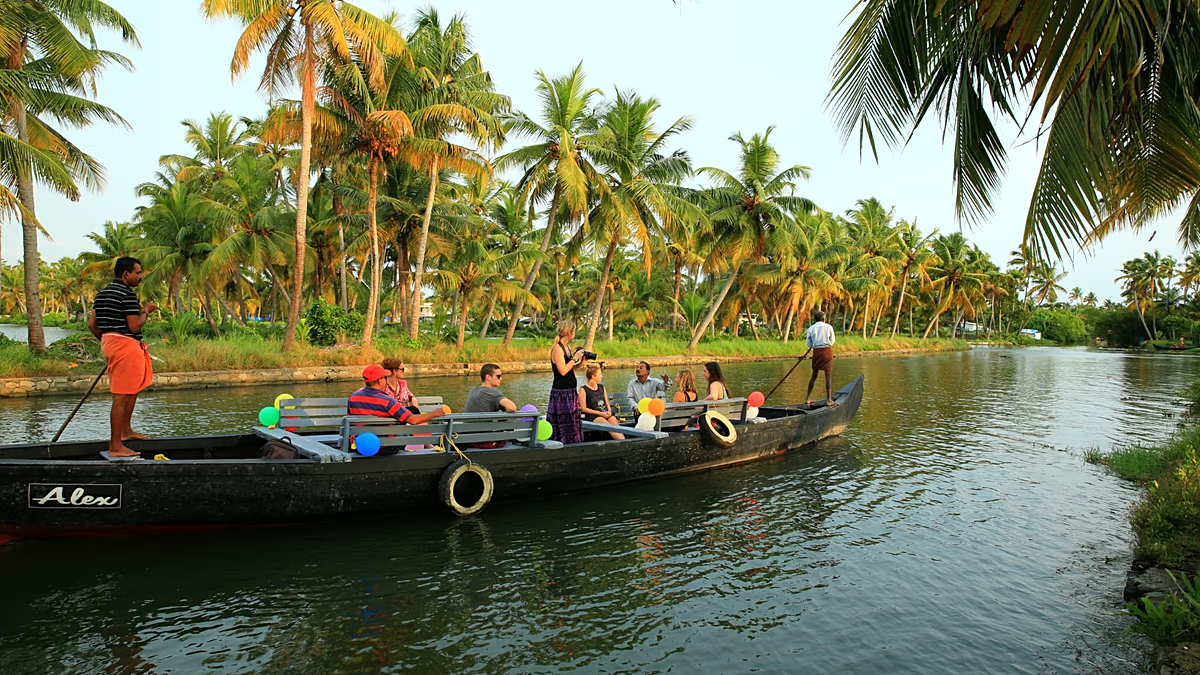Kerala: A Complete Experience for Body, Mind, and Soul
Kerala, known as “God’s Own Country,” is redefining itself as more than just a destination of stunning backwaters and picturesque beaches. This southern Indian state is emerging as a comprehensive hub for wellness, sustainability, cultural immersion, and natural splendor. Speaking with Euronews Travel at the World Travel Market in London, Sreedhanya Suresh, Kerala’s additional director general of tourism, revealed the remarkable diversity that makes this region unique: “Whatever a person wants to experience, Kerala can provide it. We have everything—it’s a complete package. Each of our 14 districts has its own potential and tourism identity.” From the tranquil palm-lined shores of Varkala to the misty tea plantations of Munnar, Kerala offers travelers an astonishing variety of landscapes and experiences within a relatively compact geography, making it possible to enjoy beaches one day and lush forests the next without extensive travel.
The crown jewel of Kerala’s natural attractions remains its legendary backwaters—a mesmerizing network of interconnected canals, lagoons, and lakes spanning over 900 kilometers. These waterways represent more than just stunning scenery; they’re living ecosystems where traditional life continues much as it has for centuries. “Backwaters are endemic to Kerala—you’ll only find them here,” explains Suresh. Travelers can spend days drifting on traditional houseboats through places like Alappuzha (Alleppey), observing authentic village life unfold along the banks. Local fishermen cast their nets at dawn while floating markets sell everything from freshly harvested spices to handwoven crafts. The backwater experience exemplifies slow travel at its best—allowing visitors to disconnect from modern stress while connecting deeply with both nature and local culture. These aquatic labyrinths, flanked by swaying coconut palms and vibrant rice paddies, offer a meditative journey through Kerala’s heart that can’t be replicated anywhere else in the world.
What truly distinguishes Kerala from other destinations is its profound wellness heritage, particularly as the birthplace of Ayurveda, one of the world’s oldest holistic healing systems. Dating back over 5,000 years, Ayurveda is deeply integrated into Kerala’s identity and daily life. “Ayurveda is based on plant medicine,” Suresh notes. “Whether you have a fracture or other health issues, Ayurveda provides natural, holistic treatments that can promote healing and wellness.” The state’s unique biodiversity supports this ancient practice, with numerous medicinal plants growing naturally in its forests and gardens. Visitors can experience authentic Ayurvedic treatments ranging from rejuvenation therapies to more intensive healing programs. Complementing this wellness tradition is Kalaripayattu, Kerala’s ancient martial art that originated in the 3rd century BCE. This remarkable practice combines athleticism, meditation, yoga, and precise body movements to create what many consider the world’s oldest martial art form. “It improves body strength, concentration, and mindfulness—it’s a true mind-body discipline,” explains Suresh. For travelers seeking physical and spiritual rejuvenation, Kerala offers these authentic, time-tested traditions that address wellness at every level.
Kerala’s cultural canvas bursts with color and spectacle through its year-round festival calendar. These celebrations—many dating back centuries—provide windows into the region’s spiritual traditions and community values. Thrissur Pooram stands among Asia’s most magnificent festivals, drawing over a million visitors annually during April-May to witness spectacular parades featuring caparisoned elephants, elaborate parasols, and thunderous percussion ensembles at the ancient Vadakkunnathan Temple. “Kerala’s festivals are about community, devotion, and joy,” says Suresh. Equally compelling are ritual performances like Theyyam, where performers embody deities in elaborate costumes and makeup, and Kathakali, the classical dance-drama recognized by UNESCO as a Masterpiece of the Oral and Intangible Heritage of Humanity. Kathakali performances tell mythological stories through intricate facial expressions, elaborate costumes, and stylized gestures that require years of rigorous training. These cultural expressions aren’t merely preserved as museum pieces; they remain vibrant parts of Kerala’s living heritage, offering travelers authentic glimpses into traditions that have shaped the region’s identity for millennia. The performances combine spiritual depth with artistic excellence, creating experiences that resonate on multiple levels.
The culinary landscape of Kerala provides another compelling reason to visit, offering distinctive flavors shaped by the state’s tropical abundance and multicultural history. “We have both vegetarian and non-vegetarian cuisines,” Suresh explains, noting the diversity that makes Kerala’s food scene so remarkable. The traditional Sadya—a vegetarian feast served on banana leaves during celebrations and festivals—presents over 30 distinct dishes in a single meal, showcasing the complexity and sophistication of Kerala’s plant-based traditions. Seafood enthusiasts can indulge in countless preparations featuring fresh catch from the Arabian Sea, often prepared with the state’s signature coconut and spice combinations. Breakfast specialties like appam (lace-edged rice hoppers) served with stew, kadala curry, and tapioca with seafood offer delicious introductions to local flavors. The tourism board is developing dedicated food circuits that allow visitors to explore regional specialties across different districts. “Kozhikode, for instance, is famous for its biryani and tea culture,” Suresh notes. “You can spend an entire day exploring its food scene.” For culinary travelers, Kerala’s distinctive cuisine—with its balanced use of coconut, curry leaves, mustard seeds, and fresh spices—represents a gastronomic journey unlike any other in India.
As tourism evolves globally toward more responsible practices, Kerala has positioned itself at the forefront of sustainable travel initiatives, integrating environmental consciousness into its development strategy. “Tourism is our heart and soul,” Suresh emphasizes. “Each person in Kerala feels responsible for protecting nature.” The state’s comprehensive Responsible Tourism Mission aligns with the UN’s Sustainable Development Goals, focusing on community-based projects, plastic reduction, and carbon-neutral destinations. Many of Kerala’s tourism sites have already achieved carbon neutrality, setting standards for ecological responsibility in the industry. This commitment to sustainability isn’t merely a marketing strategy—it reflects the deep connection Kerala’s people maintain with their natural environment. Local communities actively participate in conservation efforts while benefiting economically from tourism through handicrafts, homestays, cultural performances, and culinary experiences. The approach ensures that tourism supports rather than exploits local ecosystems and traditions. For conscientious travelers seeking meaningful connections with destinations that share their values, Kerala offers a model of how tourism can honor both people and place while creating authentic, enriching experiences that nourish not just the traveler but the destination itself.










